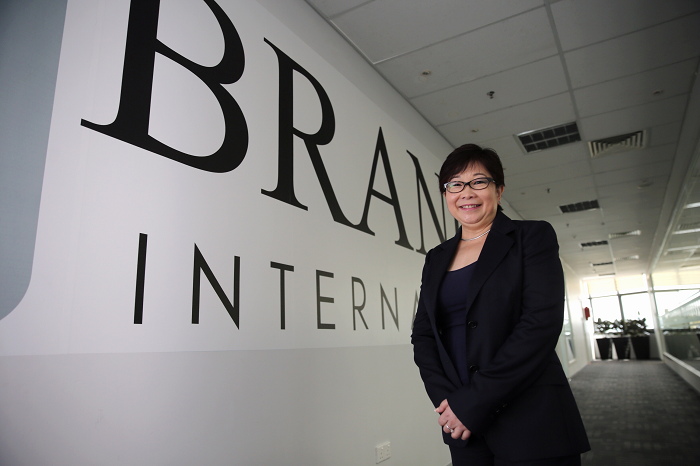Covid-19 brings about mass digital adoption
By Kiran Kaur Sidhu April 10, 2020
- Business continuity plans should already be in place and ready to execute
- Data governance is the main challenge in the work-from-home environment

“Digital transformation was once a smart strategy but now it is simply a question of survival,” said Munirah Looi, the founder and chief executive officer of Brandt International. Her comment rings true as the current pandemic tests the rigour of many businesses and leave some scrambling to quickly keep up.
In a webinar “Business Sustainability, Crisis Management and Continuity in a Covid-19 World” held on 30th March, Surina Shukri, chief executive officer of Malaysia Digital Economy Corporation; Dr Mugunthan Murugen, head of marketing of Accobiotech; Clara Pat Ro, business continuity specialist at Maxis Bhd; Rajan Serniwassan, chief executive officer of Basis Bay Group and Munirah discussed matters currently afflicting the business community. The panel was moderated by Dr Alan Downe from Multimedia University.
The session was a joint initiative of Outsourcing Malaysia (OM), Pikom (The National IT Association of Malaysia) and the Contact Centres Association of Malaysia (CCAM)
Providing an overall snapshot of the current business environment, Surina shared the challenge is amplified especially since there was already an economic slowdown and many companies were riding the wave of technology transformation. Referring to Covid-19 and the uncertainty it brings, she said: “Now we are facing a situation that is unprecedented. We don’t actually know what the scenarios are going to be.”
While small medium enterprises (SMEs) are waiting with bated breath for the government to announce further targeted help for them aside from the RM250 billion economic stimulus package announced on 27th March, Surina shared that government is, “Now, taking feedback in and trying to figure out how to continue supporting businesses. I think it is just about layering.”
Business continuity plan or practice?
 Whether or not business will trickle back to normal in six months or whatever time frame, depends on current measures. But one mitigation factor that is the hands of companies is the robustness of any Business Continuity Plans (BCP) put in place. Clara (pic, left), who is also a Certified Business Continuity Planner with the Malaysia Disaster Recovery Institute, weighs in: “It all depends on whether the company has put in place pandemic plans for the organisation.”
Whether or not business will trickle back to normal in six months or whatever time frame, depends on current measures. But one mitigation factor that is the hands of companies is the robustness of any Business Continuity Plans (BCP) put in place. Clara (pic, left), who is also a Certified Business Continuity Planner with the Malaysia Disaster Recovery Institute, weighs in: “It all depends on whether the company has put in place pandemic plans for the organisation.”
“We [Malaysia] had the luxury of time. Because it started with China and then it started moving to other countries. But when the Movement Control Order (MCO) came out, there was no proper planning and governance,” she candidly says. Still, she believes the situation is under control despite there being room for improvement.
While businesses plan for a variety of scenarios, a global pandemic is usually not at the top of the list. “It’s not seen as something important because, when was the last time there was a pandemic? It looked like a document that was good to have, but not urgent until now.”
But while a lot of dialogue is currently focused on business continuity planning, the ideal situation is that plans are already in place but not put into practise. “Most of the time, they are very pretty documents but you hold off on the testing of that until much later,” says Surina, adding that even many advanced companies questioned the feasibility of organisation-wide work-from-home in early March.
Weathering the storm from an organisational standpoint
From the organisational perspective, Munirah shared the experience of Brandt International which does business process outsourcing (BPO). Having embarked on its digital transformation journey last year, the company has “set the stage” and prepared staff for a work-from-home (WFH) environment.
“We understood the landscape very early in the game. In fact, we started our BCP discussions in February with a laser focused execution plan and deliberated all scenarios including MCO. And by the first week of March, 30% of our workforce was already in WFH environment and 50% in the second week. Immediately on the day the MCO kicked in, 100% of our workforce was already in the WFH platform,” shared Munirah.
It is a commendable feat but not one without challenges. Among them were managing clients and getting their endorsements, changes in human resource policies and guidelines and helping staff adapt to the virtual work environment. “Most challenging for us was managing real-time information and interpretation of policies that came from the government,” she said, explaining that unclear information caused a lot of unproductivity in managing the situation.
As for what is next for the company, Munirah says data privacy and data protection is a key focus area in addition to employee productivity and morale. “We are thankful that 95% of our projects are long term,” she said in regards to revenue protection.
For data centre management firm Basis Bay, Rajan says operations are as usual and running well. “In a data centre, we don’t use much human resources. So we maintain a small team of engineers and IT personnel to manage the day-to-day operations and any issues can be easily raised to management working remotely.”
Basis Bay is fully committed to “keeping the lights on” in the data centre. Rajan says its main concern is if a shortage of fuel happens during this crisis as it needs that for its backup generators to fall back on. “Other than that, we have the expertise in-house and with our partners should any other technical problems occur.”
Five areas of lasting change post-pandemic
The Covid-19 pandemic has undoubted cast a volley of business challenges and is expected to bring about lasting change to the landscape. Surina touched upon five key areas of transformation with the first being “a world that is digital by default” bringing about mass adoption immediately.
bringing about mass adoption immediately.
The need for speed is also another key focus, she said. “Companies that are able to move really fast are the ones that will seize the opportunities. And really, the way to do this is to leverage on digital tools.”
Thirdly, one critical lesson from the current pandemic is the interconnectivity and reliability of supply chains which businesses will need to diversify down the line. The fourth point Surina put across is the need for new working models.
“Management needs to be very agile and think differently. For example, most companies today are not set up to work with freelancers,” she said, highlighting the need to facilitate such processes going forward. On her fifth point, Surina touched upon maintaining a sense of community while working from home.
As a physician, Dr Mugunthan (pic, right) offered his insight on maintaining a social work environment via video conferencing. “We need contact, we are all social animals. Yes, it is a virtual thing but it’s better than not being able to see facial expressions and talk.”
And with a new normal expected in the workplace, expect video conferencing to play a much bigger role in our jobs post-MCO and of course much more adoption of digital tools. There are no excuses now.
Related stories:
Online Grocers struggle to meet demands created by RMO in Malaysia
Effects of Coronavirus still unknown, as tech giants soldier on
Axiata, Celcom, Boost Launch US$34.2mil Fund to assist Micro SMEs Hit by Covid-19


